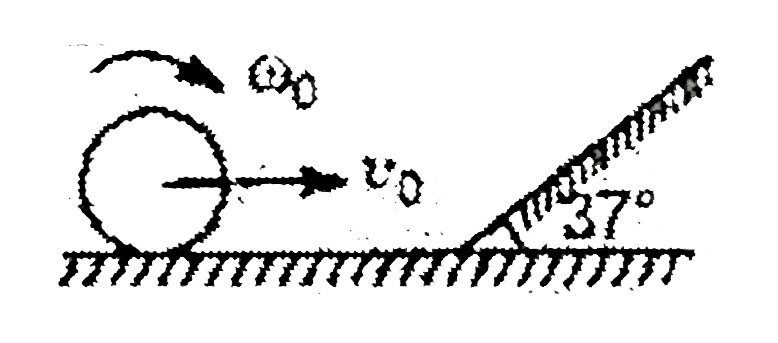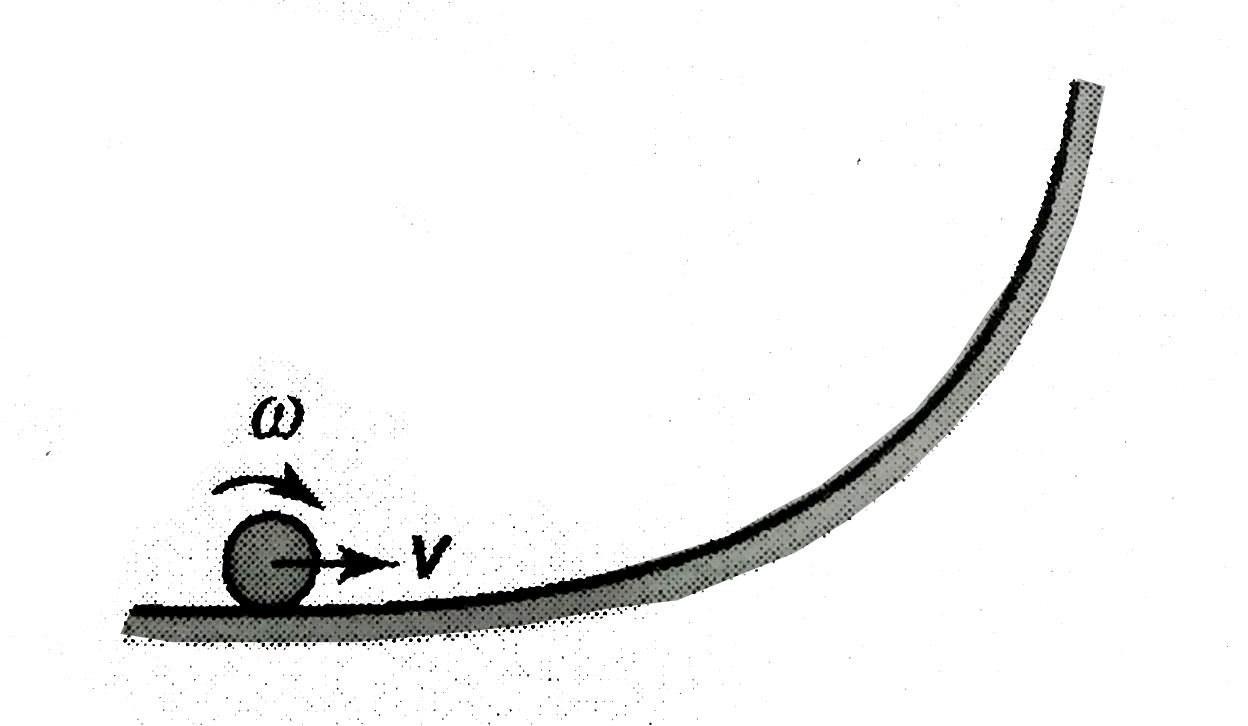A solid sphere is rolling on a frictionless surface, shown in figure with a translational velocity vm/s. If it is to climb the inclined surface then v should be :

≥√10/7gh
≥√2gh
2gh
10/7gh
The correct Answer is:A
From conservation of energy Potential energy = translational kinetic energy + rotational kinetic energy
mgh=12mv2+125mR2⋅v2R2
⇒ 710mv2=mgh⇒v≥√107gh.
Topper's Solved these Questions
Similar Questions
Knowledge Check
A solid sphere is rolling on a frictionless surface, shown in figure with a translational velocity vm/s. If is to climb the inclind surface then v should be :
 A(1)≥√107ghB≥√2ghC2ghD107gh
A(1)≥√107ghB≥√2ghC2ghD107ghA solid sphere is rolling down an inclined plane. Then the ratio of its translational kinetic energy to its rotational kinetic energy is
A2.5B1.5C1D0.4A sphere is moving on a smooth surface with linear speed v0 and angular velocity ω0. It finds a rough inclined surface and it starts climbing up:
 Aif v0>Rω0 friction force will act downwardsBif v0<Rω0, frictio force will act upwardsCif v0=Rω0 no friction force will actDif all above case friction will act upwards
Aif v0>Rω0 friction force will act downwardsBif v0<Rω0, frictio force will act upwardsCif v0=Rω0 no friction force will actDif all above case friction will act upwards
A solid sphere is rolling on a frictionless plane surface about the axis of symmetry. Find the rotational energy of the sphere. Also, find the ratio of rotational K.E. to total energy.
View SolutionA hollow sphere rolls without slipping the on the horizontal surface such that its translational velocity is v. Find that the maximum height attained by it on an inclined surface.

View SolutionWhen a solid sphere is rolling along level surface the percentage of its total kinetic energy that is translational is
View SolutionA ring, disc, spherical shell and solid sphere of same mass and radius are rolling on a horizontal surface without slipping with same velocity. If they move up an inclined plane, which can reach to a maximum height on the inclined plane?
View SolutionA solid cylinder rolls up an inclined plane of inclination θ with an initial velocity v. How far does the cylinder go up the plane ?
View Solution

